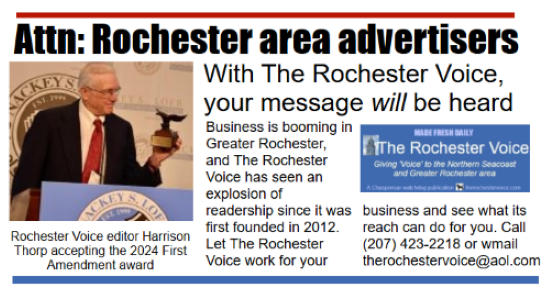With local governments dealing with pressing issues like high inflation and elevated homicide rates, the personal-finance website WalletHub today released its report on 2023's Best and Worst Run Cities in America, as well as expert commentary.
To determine the effectiveness of local leadership, WalletHub compared 149 of the largest U.S. cities based on their operating efficiency. For each city, WalletHub constructed a "Quality of City Services" score - comprising 36 key performance indicators grouped into six service categories - that was then measured against the city's total per-capita budget.
| Top 20 Best-Run Cities in America | |
| 1. Nampa, ID | 11. Oklahoma City, OK |
| 2. Lexington-Fayette, KY | 12. Warwick, RI |
| 3. Nashua, NH | 13. Manchester, NH |
| 4. Boise, ID | 14. Durham, NC |
| 5. Provo, UT | 15. Wichita, KS |
| 6. Lincoln, NE | 16. Rapid City, SD |
| 7. Fort Wayne, IN | 17. Bismarck, ND |
| 8. Sioux Falls, SD | 18. Baton Rouge, LA |
| 9. Las Cruces, NM | 19. Raleigh, NC |
| 10. Missoula, MT | 20. Chesapeake, VA |
Best vs. Worst
- Casper, Wyoming, has the lowest long-term debt outstanding per capita, $663, which is 41.6 times lower than in Nashville, Tennessee, the city with the highest at $27,567.
- Warwick, Rhode Island, has the fewest violent crimes (per 1,000 residents), 0.82, which is 28.7 times fewer than in Memphis, Tennessee, the city with the most at 23.52.
- Madison, Wisconsin, has the lowest unemployment rate, 1.60 percent, which is 6.8 times lower than in Flint, Michigan, the city with the highest at 10.90 percent.
- Fremont, California, has the lowest share of the population living in poverty, 4.90 percent, which is 7.2 times lower than in Flint, Michigan, the city with the highest at 35.50 percent.
To view the full report and your city's rank, please visit:
https://wallethub.com/edu/best-run-cities/22869
Expert Commentary
In your opinion, what are the most important issues facing U.S. cities today?
"There are a variety of issues facing cities in the U.S. today. Improved transportation infrastructure, increasingly diverse populations that strain traditional decision-making processes, ensuring adequate educational options that meet the needs of families as well as supporting local workforce needs, the lack of citizen participation in local governments, and criminal justice issues. But perhaps the most pressing issue facing American cities today is the decreasing availability of affordable housing - especially for those at the lower ends of the income ladder. While the worst situations can be found in coastal cities (San Francisco, New York, Boston, etc., this is not exclusive to these communities. Local governments are primarily the culprits in this situation but also have to be the solutions."
James Davenport - Associate Dean for Social Sciences; Professor, Rose State College
"Cities historically pursue an economic growth strategy and, if they are fortunate enough to achieve it, face managing that growth in an equitable, sustainable way. Ensuring access to affordable housing, maintaining environmental standards, and providing equitable educational opportunities are all essential and help attract new residents. Mixed-use, multi-income development, and redevelopment are promising strategies but difficult to execute and achieve in practice. Similarly, cities want to attract high-paying jobs and high-salary residents who go to places with strong infrastructure and public services but are frequently constrained about providing those services and concerned about pricing out existing residents once the new, better services and infrastructure are in place."
Michael Touchton - Professor; Faculty Lead for Global Health, University of Miami
What can citizens do to increase the transparency and accountability of local government?
"Get involved, go to meetings, fill out the surveys, and answer the phone when they call you to get your input or give you information. Cities have many points of access for citizens to be involved or to monitor what is happening. Citizens have to be more active and take advantage of the opportunities to be involved with the programs and policies of the city government."
Katrina Taylor - Professor; Chair, Anthropology/History/Political Science, Tacoma Community College
"Participate in their local governments. Local elections have notoriously low voter turnout (often in the single digits), which calls into question the representativeness and legitimacy of democratic decision-making at that level. Beyond voting, citizens need to communicate their preferences to their local government officials in between elections. To do this, they need to become familiar with and knowledgeable about the issues impacting their communities. Demonstrating a consistent knowledge of and interest in local governments - which have the most direct impact on citizens' daily lives of any government - is the best way of improving the transparency and accountability of local government."
James Davenport - Associate Dean for Social Sciences; Professor, Rose State College
How can local policymakers reduce racial tensions in the wake of recent movements?
"Cities could fully fund services in low-income, racial minority communities to improve standards of living and quality of life. City governments can work with community stakeholders to improve public safety operations in the community, for example, by hiring police officers who are from and live in an area they police. Cities should acknowledge their histories that produced and increased racial tension in the first place and provide open dialogue and programs to address specific issues where people of color have faced historic discrimination, as in housing."
Michael Touchton - Professor; Faculty Lead for Global Health, University of Miami
"First, municipal leaders should not make any assumptions regarding race relations in their communities based on events in communities far away that are very different. Second, if local leaders believe there are areas of improvement that can be made in their community's race relations, they need to not assume they already know what should be done. They need to be proactive listeners. Government officials at all levels have a bad tendency to think they know what certain communities need without ever taking the time to communicate with those who live in those communities. So, take the time to find out what are or have the potential to be points of racial tension. Third, ensure that minority communities have a voice at the table. This includes not diminishing the voting strength of minority communities through the gerrymandering of municipal wards, ensuring that minority voices are included on policy matters that will affect their communities, and ensuring that citizen oversight boards adequately reflect the diversity of the community. Finally, use data to guide decision-making in this area. While statistical differences among racial groups are not by themselves evidence of discrimination, they can lead to uncovering processes, regulations, and activities that have disparate impacts on minority communities. Being proactive, inclusive, fact-driven, and responsive remains the best way to mitigate racial tensions in a community."
James Davenport - Associate Dean for Social Sciences; Professor, Rose State College














